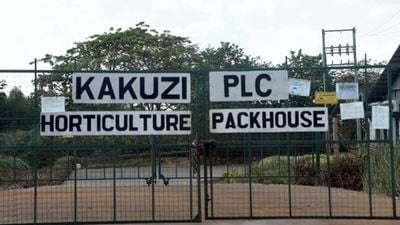SUMMARY
- Britain’s largest supermarket chain, Tesco is yet to reinstate avocado supplies by Kakuzi as it presses for compressive human rights reforms by the Murang’a-based agriculture firm.
- The British retailer on October 11, 2020 temporarily dropped Kakuzi as its supplier of avocados pending investigations into alleged assault and sexual misconduct by some of its employees.
- The ban stands nearly a year later, even as sources told the Business Daily that Tesco pressed for deeper reforms to safeguard the rights of workers and the communities living around the Kakuzi farms.
Britain’s largest supermarket chain, Tesco is yet to reinstate avocado supplies by Kakuzi as it presses for compressive human rights reforms by the Murang’a-based agriculture firm.
The British retailer on October 11, 2020 temporarily dropped Kakuzi as its supplier of avocados pending investigations into alleged assault and sexual misconduct by some of its employees.
The ban stands nearly a year later, even as sources told the Business Daily that Tesco pressed for deeper reforms to safeguard the rights of workers and the communities living around the Kakuzi farms.
Through its Kent-based parent Camellia Plc, Kakuzi has been sued over the alleged human rights violations by its employees— which it has denied. The UK-listed company Camellia owns 50.7 percent of Kakuzi.
Law firm Leigh Day said that 79 Kenyans had launched a legal claim in the High Court in London against Camellia for alleged human rights abuses by security guards employed by Kakuzi, its Kenyan subsidiary. The allegations, dating from 2009 to January 2020, include rapes, attacks on local villagers, and a man being beaten to death, Leigh Day said.
The Nairobi Securities Exchange-listed Kakuzi this week pledged to accelerate human rights reforms to comply with international standards.
“We are taking any issues on human rights extremely seriously,” Wilson Odio, the Kakuzi assistant general manager in charge of corporate affairs, told the Business Daily in an interview on Wednesday.
“We are cognizant of the fact that going forward businesses will more and more have to observe human rights in the course of their operations. Kakuzi does not in any way entertain human rights abuse of any sort.”
Dr Odio cited some recently instituted measures to address the claims.
They include the employment of a manager in charge of human rights issues, an audit by a global firm on the impact of its operations on human rights, and the establishment of a dedicated operational-level grievance reporting mechanism that will provide multiple avenues through which our employees and the community can raise issues they would like the company to address.
Kakuzi has also appointed former Attorney-General Githu Muigai to chair the company’s newly created Independent Human Rights Advisory Committee (IHRAC) that will provide technical advice to the board of directors.
“They have already started working. Their work is to advise Kakuzi on human rights issues,” said Dr Odio.
Camellia said earlier it would take remedial measures and undertake governance reforms, and encourage its subsidiaries to do the same with an aim of better handling potential future abuses.
The measures include funding of charcoal kilns and access to firewood, building two social centres for community meetings, and employing predominantly female safety marshalls on Kakuzi’s farm “to give visible reassurance to those using access routes and particularly women.”
Dr Odio said Wednesday, Kakuzi has built new roads to give community residents better access to local amenities and hired some as marshalls.
“We are doing what we have to do ensure that where there are human rights issues, they are addressed,” Dr Odio said.
Camellia and its local subsidiary are trying to win back the confidence of customers in Europe who value ethical corporate behaviour nearly as much as the quality of produce.
The value of avocado supplies by Kakuzi to the UK and other countries in Europe in the half-year period to June this year fell by 52.88 percent to Sh137.2 million from Sh291.2 million in a similar period a year earlier, according to Kakuzi’s latest financial statements.
Resolving of the human rights disputes will be important in Kakuzi’s readmission as a supplier of avocadoes to UK supermarkets, including Tesco that suspended their orders after the alleged abuses were reported by UK’s Sunday Times.
Supermarket chains Sainsbury’s and Lidl also suspended Kakuzi supplies last year in the wake of the reports.
Kakuzi’s net profit for the first six months of this year dropped 28.6 percent to Sh194.6 million compared to Sh272.8 million in the review period, attributed to Covid-19 lockdowns and related restrictions by the company.
The human rights row cost Kakuzi and its parent firm Camellia a total of Sh1.1 billion in legal fees and payments to the victims in Kenya and Malawi.
Tesco operates over 3,961 grocery stores in the UK and Ireland, including franchise stores.
There's no story that cannot be told. We cover the stories that others don't want to be told, we bring you all the news you need. If you have tips, exposes or any story you need to be told bluntly and all queries write to us [email protected] also find us on Telegram

